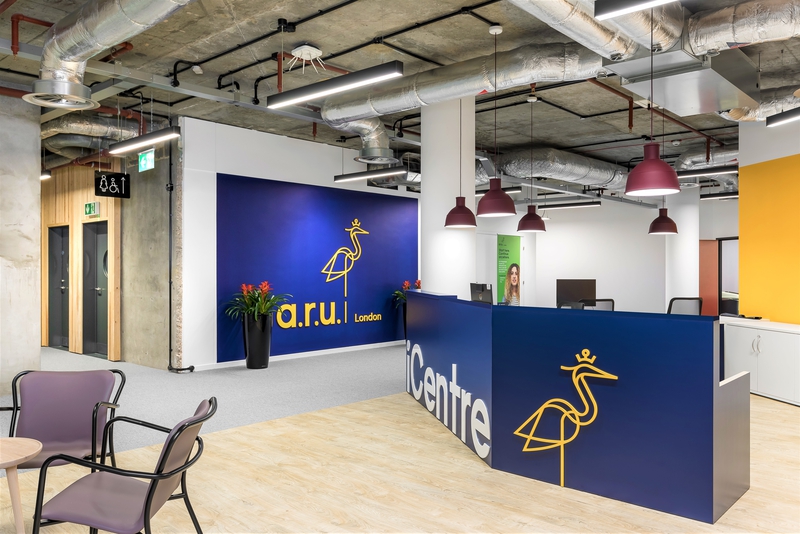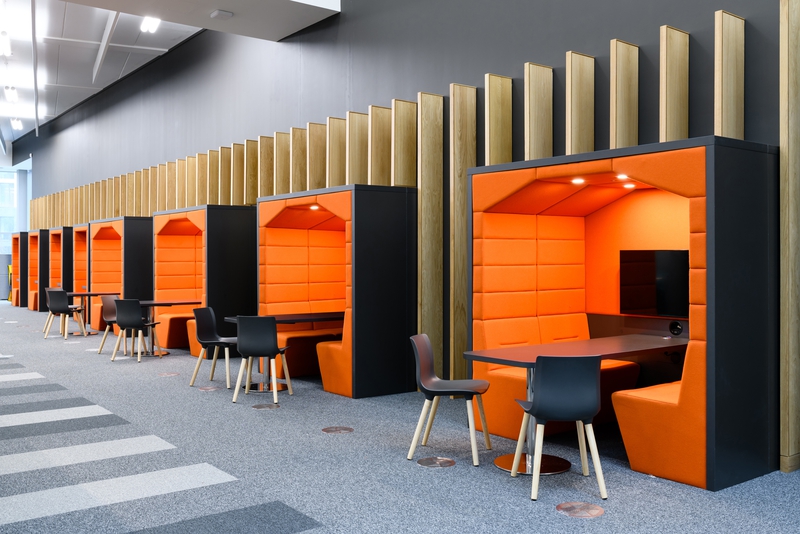
The Solution to Survival in Today’s War For Talent
The advances of technology are disrupting almost every market. In order to prosper, and win the war for talent we need to act like a tech company and deliver the best personalized experience that our customers are looking for. So let’s take a look at some of the ways that technology is transforming our world.
The impact that technology is having on every company
It takes more computing power to undertake one Google search than it did to put man on the moon, for example. Intel’s latest processor can switch on and off over a billion times a second, and it would take a human 2000 years to do the same. This spiraling advance of tech will totally change our future. Consider the advances in robotisation, big data, internet of things, bitcoin, driverless cars, augmented reality - this is and will have a huge impact on how we behave, how we communicate and how we think. Technology has particularly changed how businesses interact with customers and in the last 10 years, it has been used to connect providers and consumers in a new more intelligent and efficient way - a way that delivers huge choice, control and customisation to the consumer and at the same time nearly always reducing cost.
The companies which are doing this are becoming successful disrupters in their market such as Uber, Air BNB and WhatsApp. But there are disrupters for almost every industry, such as on-demand laundry, peer-to-peer lending, personal health sensors and online estate agents. Someone smart in every vertical is changing the rules, we are seeing a great awakening that companies from every market are beginning to realise that they are, or need to become a technology company, to disrupt and differentiate, or simply to keep up and survive, and for most organisations this will be a huge leap into the unknown.
One of the most significant changes that every company will have to make in this tech driven world
To become a tech company, every company will need to invest in tech talent. We are all going to need talent that not only understands this technology, but that thinks this technology and is born into this technology - we will need people who have grown up not knowing anything else. If the speed of technology growth doubles every two years, then the average tech knowledge becomes obsolete at the same increasing rate.
Unless a conscious effort is made to continuously train the entire workforce, by default, the optimum tech knowledge rests with a younger and younger demographic. This is why university graduates have come into the spotlight especially those with computer science degrees and in particular, from universities that are a stone’s throw away from Silicon Valley, like Stanford, California. This group have been living and breathing, not just the technology, but the thinking that has created this technology too and they have the DNA embedded in them that these disrupters need. So where is this increasingly valuable and scarce resource being employed? 10 years ago, it was the banks that employed them, but now this talent is going to the tech companies.
In 2007, about 13% of Harvard’s graduates who landed jobs went into investment banking. In 2016, a survey showed that only 4% were intending to join a bank after getting their degree. Jobs for these tech giants like Facebook, Google and LinkedIn are very popular, and these companies have a huge volume of potential to choose from. For example, Google have 2 million applicants a year, but they are not the only ones. Dyson have devised an ingenious way to identify the very best by creating a series of online riddles to be solved before a CV can even be submitted for review. But this is what is most important. It’s not just the techs.
Almost every company across industries, which is aiming to become a digital disrupter, is competing for the same pool of talent. The real problem is that there is no way round it, these companies need tech talent too, because everyone is now a tech company. Either through smart strategy or in desperation, these companies are looking at Silicon Valley’s techs, and at Google, and are significantly overhauling their recruitment strategy.
In particular, they’re looking at their office space. It’s no longer just real estate or a people container, but a recruiting tool, a talent magnet and an incubator of the next breakthrough idea that will change the world. And this is why we believe the question is often asked, how can we get an office like google.
Redefining what having an ‘office like Google’ really means
So what does having an office like google really mean? It doesn’t mean we need to be exactly like Google with slides, space hoppers, on-site doctors or free ice cream. What’s really meant is that, we wish to become a highly attractive place to work - it means, we’re a talent magnet too! So what do we need to consider when we are designing a workspace for talent? If the youngest section of our workforce hold the magic key to success, are our workspaces wired to their thinking? Because this talent thinks, works and is motivated differently.
So how do we win this war for talent?
This generation has grown up sharing, sharing rides, sharing holidays, sharing music, and perhaps most importantly, sharing knowledge. Do our workspaces cater for, and even promote those chance meetings and casual encounters which this workgroup needs to start the next wave of thinking? Millennials are highly brand conscious, so do our spaces fulfill the expected design thinking? The employees are now the company’s brand, but is this reflected in our workspaces? Are they dominated by conformity, or do they enable the expression of personality? Do we understand the millennial mind? This generation is attracted by more than money. They also want to change the world.
Gen Y are known for their creativity, flexibility and open-mindedness and this is what makes them attractive to these techs, but their work must count. They need challenges and freedom to fulfill them so does our culture embrace freedom of ideas, freedom from supervision and freedom of work location? Is our space configured for the technology millennials use? Can they personalize and adjust their local environment to their needs, or can they choose an environment to suit their mood or their task? We live in a world which is changing rapidly, a world which is forcing us to evolve or be deleted.
The solution to survival and dominance in each of our markets lies in the knowledge, the skills and the thinking of the next generation and our workspaces must be configured to attract, support and retain them.
Click here to contact us to find out more, or see our range of configurable products designed for the millennial mind here.




Gensler's new offices at the Houston Center provide a blank canvas and fresh perspective, as well as an immersive exper…
ARCHITECTURE & CONCEPTION

ARU's Clerkenwell location is a transformed space for students and employees alike. With a plethora of working and lear…
EDUCATION

An extra 100,000 square foot for the Curzon Building of BCU, providing enviable facilities for this hub of student exce…
EDUCATION
